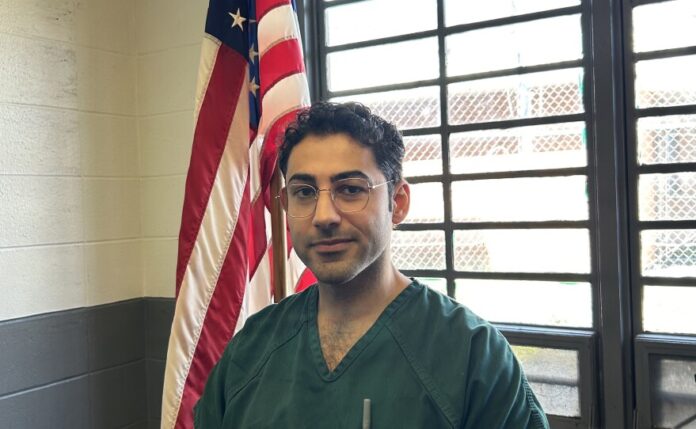On April 30, 2025, Mohsen Mahdawi, a Palestinian Columbia University student, walked out of a Vermont courthouse a free man, his release a bold stand against injustice. Arrested on April 14 during what he believed was a routine U.S. citizenship interview, his detention sparked outrage and rallied supporters nationwide. This victory, ordered by U.S. District Judge Geoffrey Crawford, isn’t just personal—it’s a defiant challenge to the Trump administration’s crackdown on immigrant voices. Let’s dive into Mohsen’s story, a tale of resilience, free speech, and the power of community.
Mohsen Mahdawi’s Arrest: A Trap Unveiled
Mohsen, a 34-year-old legal permanent resident for over a decade, arrived at a U.S. Citizenship and Immigration Services office in Colchester, Vermont, expecting to finalize his citizenship. Instead, masked ICE agents shackled him, a moment captured on video as he flashed a peace sign. His crime? None, according to his legal team. They argue his detention was retaliation for his pro-Palestinian activism at Columbia, where he co-founded the Palestinian Student Union and led protests against Israel’s war in Gaza until March 2024. The government claimed his presence posed “serious adverse foreign policy consequences,” a vague justification that Judge Crawford rejected, citing “substantial claims” of retaliatory detention.
| Key Details of Mohsen’s Case |
|---|
| Arrest Date: April 14, 2025 |
| Location: Colchester, VT |
| Reason: Alleged foreign policy threat |
| Release Date: April 30, 2025 |
| Conditions: Reside in Vermont, attend hearings |
Mohsen Mahdawi’s Release: A Victory for Free Speech
Outside the courthouse, Mohsen led hundreds of supporters in chants of “Free Palestine” and “No fear,” his voice unwavering. “I am not afraid of you,” he declared to President Trump and his administration, a message echoing his NPR interview where he warned that free speech is “in jeopardy.” His release, celebrated by the ACLU of Vermont, marks a setback for policies targeting immigrant activists. Judge Crawford allowed Mohsen to travel to New York for his Columbia graduation next month, a nod to his academic achievements in philosophy and plans for a master’s degree. Yet, the fight isn’t over—his legal team braces for a potential government appeal.
A Community Rallies Behind Mohsen
Born in a West Bank refugee camp, Mohsen Mahdawi moved to the U.S. in 2014, building a life in Vermont’s Upper Valley. Known as a barista and bank teller, he’s a beloved figure in Hartland, where locals packed a church to support him. His activism, rooted in human dignity, also earned allies like Senator Bernie Sanders, who rallied for him in Washington, D.C., on April 29. Emails revealed Mohsen sought Columbia’s help after an FBI visit and a break-in, pleas ignored by the university. This betrayal fueled public support, with protests from New York to Burlington demanding his freedom.
What’s Next for Mohsen and Others?
Mohsen’s release is a beacon of hope, but the broader struggle persists. His friend Mahmoud Khalil, another Columbia activist, faces deportation in Louisiana under similar charges. The Trump administration’s use of the Immigration and Nationality Act to silence dissent has drawn comparisons to McCarthyism, with Judge Crawford himself noting parallels to the Red Scare. For Mohsen, the road ahead involves court hearings and vigilance, but his spirit remains unbroken. “Justice will prevail,” he told NPR, a mantra that drives his fight.
This isn’t just Mohsen’s story—it’s a wake-up call. His courage reminds us that democracy thrives when voices, no matter how marginalized, refuse to be silenced. As he prepares to graduate, Mohsen Mahdawi stands tall, a symbol of resistance and hope. Will you join the call to protect free speech and immigrant rights?
